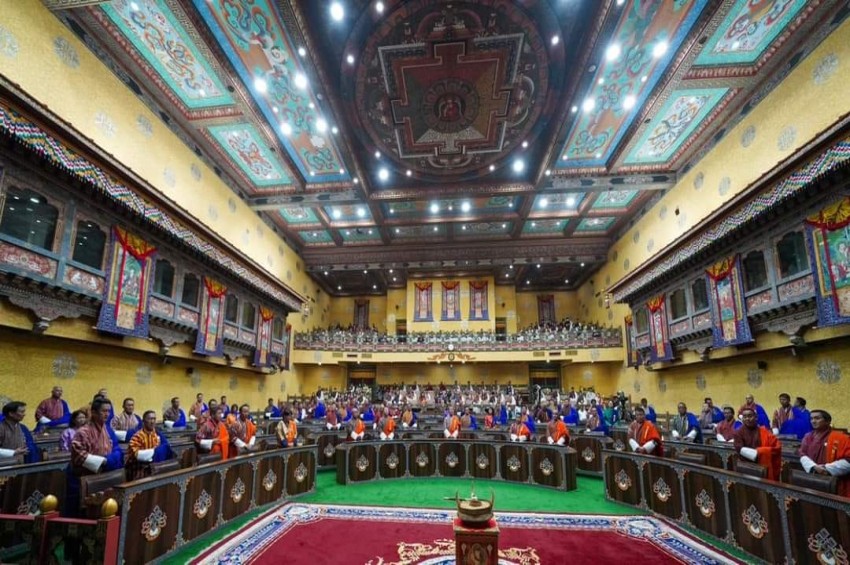Close of the heels of the Royal Civil Service Commission (RCSC) managing out senior executives as part of the civil service reform, two personnel from the Ministry of Agriculture and Forests (MoAF) were “compulsorily retired” for speaking to the media. The RCSC said that the senior executives failed to meet their expectations and were thus managed out. However, the MoAF did not say that the administrative action taken was part of the overall RCSC reform. Nevertheless, when viewed with a magnifying glass, it is part of the RCSC reform. And if it is not, it should be made part of the reform, for civil servants refuse to move from Thimphu and other urban areas, citing several reasons.
The provisions on transfers are clearly articulated and the RCSC is compassionate on transfers, especially concerning spouses. Section 14.4.14 of the BCSR 2018 says “If both the spouses are civil servants, their simultaneous transfer to the same location, shall be facilitated, as far as possible.” Further Section14.11.1 says that non-compliance with the Rule shall be treated as a violation of BCSR and hence, the HRC/Agency shall be accountable. Following this is Section 14.11.2., which says “civil servants failing to abide by the Transfer Order shall be liable for administrative actions.”
Thus, in all fairness, the MoAF’s action was not just based on Code and Conduct but also on failing to abide by the above cited provisions.
If you talk with human resource (HR) officers, many will say that they do not like the profession primarily because of the requests they get from several people – friends and relatives – to revoke transfer orders. It is worse for politicians. And there are people who openly say that they will not support a political candidate because he did not help in even a “simple case like transfer.” The pressure on HR committees concerning transfer is heavier when those transferred are somehow linked with people in power. The action taken by the MoAF will make it very easy for other agencies to entertain requests concerning transfers, unless it is very genuine.
As His Majesty said during the National Day celebrations at Tashichhodzong last year, we have very effective, rational and some of the best legal provisions in the world. However, it boils down to nothing as these are hardly implemented. Together with executives, the RCSC is working on several reforms which they say would be completed by the next fiscal year. A reform of the kind has not happened in the history of Bhutan. And this reform is an opportunity to find solutions to several loopholes that exist in the civil service, including the one cited above – reluctance of civil servants to move to the locations they are transferred to.
The provisions on transfers are clearly articulated and the RCSC is compassionate on transfers, especially concerning spouses. Section 14.4.14 of the BCSR 2018 says “If both the spouses are civil servants, their simultaneous transfer to the same location, shall be facilitated, as far as possible.” Further Section14.11.1 says that non-compliance with the Rule shall be treated as a violation of BCSR and hence, the HRC/Agency shall be accountable. Following this is Section 14.11.2., which says “civil servants failing to abide by the Transfer Order shall be liable for administrative actions.”
Thus, in all fairness, the MoAF’s action was not just based on Code and Conduct but also on failing to abide by the above cited provisions.
If you talk with human resource (HR) officers, many will say that they do not like the profession primarily because of the requests they get from several people – friends and relatives – to revoke transfer orders. It is worse for politicians. And there are people who openly say that they will not support a political candidate because he did not help in even a “simple case like transfer.” The pressure on HR committees concerning transfer is heavier when those transferred are somehow linked with people in power. The action taken by the MoAF will make it very easy for other agencies to entertain requests concerning transfers, unless it is very genuine.
As His Majesty said during the National Day celebrations at Tashichhodzong last year, we have very effective, rational and some of the best legal provisions in the world. However, it boils down to nothing as these are hardly implemented. Together with executives, the RCSC is working on several reforms which they say would be completed by the next fiscal year. A reform of the kind has not happened in the history of Bhutan. And this reform is an opportunity to find solutions to several loopholes that exist in the civil service, including the one cited above – reluctance of civil servants to move to the locations they are transferred to.

















